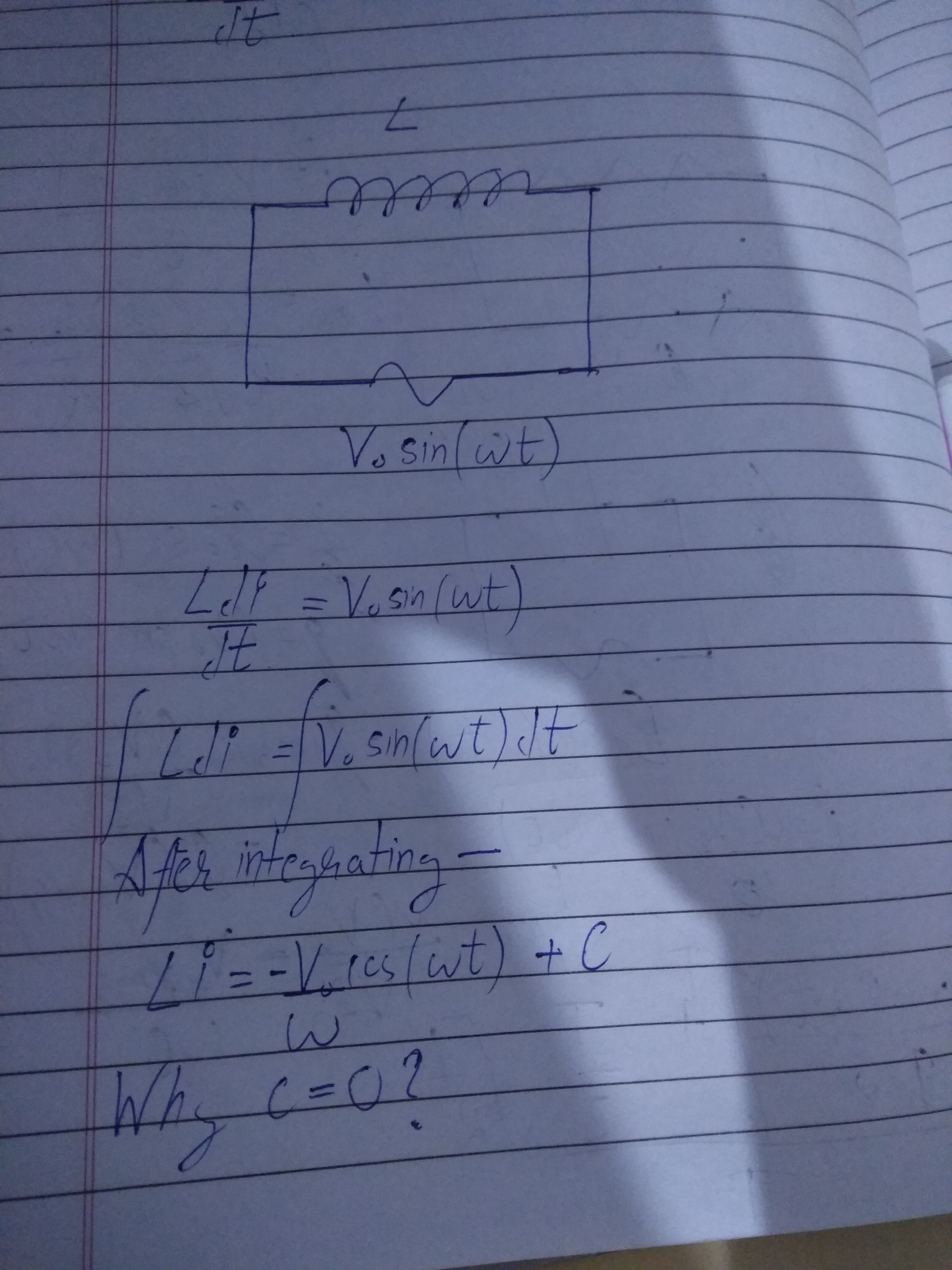While studying about AC circuits, I came across the usual differential equation of an AC circuit (in which the voltage across the source is a sinusoidal function of time) containing an inductor only.
After applying Kirchoffs Law and integrating, the book says that the integrating constant should be zero because as the voltage is sinusoidal and average of voltage over a single time period is zero the current is also expected to be sinusoidal with mean current over single time period, expected to be zero.
This doesn't sound like a satisfactory reason to me. Can someone give a better reason than this?
Any help will be appreciated.

EDIT: I've got some really good answers in which many people pointed out that in reality the value of arbitrary constant doesn't matter because the circuit would have some resistance and after integration the solution would contain an exponentially decaying term multiplied by an arbitrary constant and that would decay out very quickly.
But unfortunately that still doesn't answers my question completely. Suppose i have an Inductance, a resistance and a source of AC with a fixed peak voltage and I connect them via a switch which I keep open. As soon as I close the switch there will be a current in the circuit, which will depend on that arbitrary constant of integration. I can measure the initial current and there should be a unique value of initial current for a given value of Inductance, Resistance, Frequency and Voltage of AC source, I want to get an expression that would PREDICT this initial current (and therefore should not include and arbitrary constant). What will be that expression?
